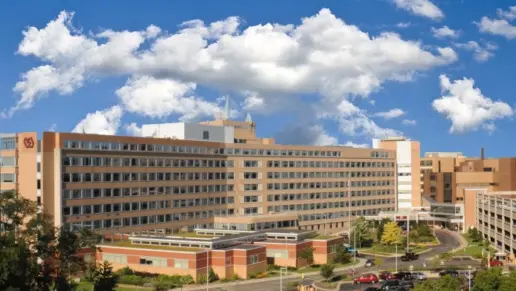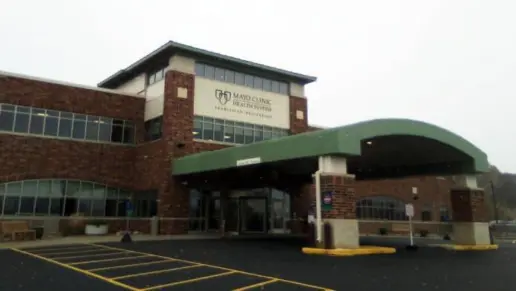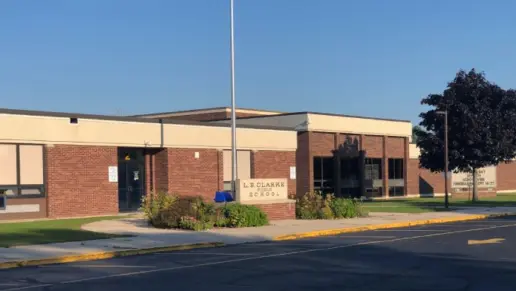I had never gone to a therapist in which I felt so well, so adapted, so listened to and understood. The majority of these places have insulting staff, but this is the exception! I recommend it 100%
About Red Oak Counseling
Located in Elm Grove, Wisconsin, Red Oak Counseling is a private mental health and addiction treatment clinic. Men, women and young adults dealing with substance use disorders can get help here. They also treat clients with dual diagnoses. If you’re a military service member or veteran then the clinic specializes in addiction treatment, PTSD and other mental health challenges related to your service. All treatment is provided in their outpatient counseling center Monday through Thursday from 9 a.m. to 5 p.m.
Payment options include self pay or insurance. The clinic works with most major insurance providers. They don’t accept Medicare, Medicaid or BadgerCare or Network Health insurance at this time.
You’ll work with a team of licensed therapists who specialize in alcohol and substance use issues. Many people in addiction treatment benefit from more than just counseling. Based on your assessment you might also collaborate with a Psychiatric Mental Health Nurse Practitioner (PMHNP) who focuses on dual diagnoses.
Treatment approaches include Cognitive Behavioral Therapy (CBT), Dialectical Behavior Therapy (DBT) and Eye Movement Desensitization and Reprocessing (EMDR). Cognitive behavioral therapy helps you understand how thoughts and feelings affect substance use. Through CBT you’ll learn to recognize and shift negative thought patterns which can make a real difference in how you feel and act.
Dialectical behavior therapy combines cognitive behavioral techniques with mindfulness practices. You’ll learn how to be present in the moment while also addressing the thoughts and feelings that can lead to unhealthy behaviors.
If you’re in recovery then EMDR can be especially useful for dealing with past traumas that might be affecting your current feelings and behaviors. By working through these memories, you can reduce anxiety and depression and make it easier to focus on your recovery.
Your treatment program may also include mindfulness and relaxation techniques to help reduce stress and ease cravings and help you stay on the path to recovery. If you’re looking for a faith-based approach then Red Oak Counseling also offers Christian counseling. This clinic provides a supportive and comprehensive treatment environment that can make a significant difference in your recovery journey.
Latest Reviews
Rehab Score
Accepted Insurance
Other Forms of Payment
Medicaid is a state based program that helps lower-income individuals and families pay for healthcare. Medicaid covers addiction treatment so those enrolled can use their coverage to pay for rehab. When a program accepts Medicaid the client often pays very little or nothing out of their own pocket.
Private insurance refers to any kind of healthcare coverage that isn't from the state or federal government. This includes individual and family plans offered by an employer or purchased from the Insurance Marketplace. Every plan will have different requirements and out of pocket costs so be sure to get the full details before you start treatment.
Self-pay involves paying for treatment out of your own pocket. You can use savings or credit, get a personal loan, or receive help from family and friends to fund your treatment. If you don't have insurance or your insurance plan doesn't cover a specific program, self-pay can help ensure you still get the care you need.
Financial aid can take many forms. Centers may have grants or scholarships available to clients who meet eligibility requirements. Programs that receive SAMHSA grants may have financial aid available for those who need treatment as well. Grants and scholarships can help you pai for treatment without having to repay.
Sliding scale payments are based on a client's income and family size. The goal is to make treatment affordable to everyone. By taking these factors into account, addiction recovery care providers help ensure that your treatment does not become a financial burden to you or your family, eliminating one barrier to care.
Medicare is a federal program that provides health insurance for those 65 and older. It also serves people under 65 with chronic and disabling health challenges. To use Medicare for addiction treatment you need to find a program that accepts Medicare and is in network with your plan. Out of pocket costs and preauthorization requirements vary, so always check with your provider.
Military members, veterans, and eligible dependents have access to specific insurance programs that help them get the care they need. TRICARE and VA insurance can help you access low cost or no cost addiction and mental health treatment. Programs that accept military insurance often have targeted treatment focused on the unique challenges military members, veterans, and their families face.
Addiction Treatments
Levels of Care
Treatments
The goal of treatment for alcoholism is abstinence. Those with poor social support, poor motivation, or psychiatric disorders tend to relapse within a few years of treatment. For these people, success is measured by longer periods of abstinence, reduced use of alcohol, better health, and improved social functioning. Recovery and Maintenance are usually based on 12 step programs and AA meetings.
The goal of drug rehab in Wisconsin is to address drug addiction as a complex issue that involves physical, mental, and relational aspects. During rehab, treatment focuses on each of these areas and gives you the tools you need to achieve and maintain sobriety.
Many of those suffering from addiction also suffer from mental or emotional illnesses like schizophrenia, bipolar disorder, depression, or anxiety disorders. Rehab and other substance abuse facilities treating those with a dual diagnosis or co-occurring disorder administer psychiatric treatment to address the person's mental health issue in addition to drug and alcohol rehabilitation.
Opioid rehabs specialize in supporting those recovering from opioid addiction. They treat those suffering from addiction to illegal opioids like heroin, as well as prescription drugs like oxycodone. These centers typically combine both physical as well as mental and emotional support to help stop addiction. Physical support often includes medical detox and subsequent medical support (including medication), and mental support includes in-depth therapy to address the underlying causes of addiction.
Substance rehabs focus on helping individuals recover from substance abuse, including alcohol and drug addiction (both illegal and prescription drugs). They often include the opportunity to engage in both individual as well as group therapy.
Programs



Clinical Services
Research clearly demonstrates that recovery is far more successful and sustainable when loved ones like family members participate in rehab and substance abuse treatment. Genetic factors may be at play when it comes to drug and alcohol addiction, as well as mental health issues. Family dynamics often play a critical role in addiction triggers, and if properly educated, family members can be a strong source of support when it comes to rehabilitation.
Group therapy is any therapeutic work that happens in a group (not one-on-one). There are a number of different group therapy modalities, including support groups, experiential therapy, psycho-education, and more. Group therapy involves treatment as well as processing interaction between group members.
Trauma therapy addresses traumatic incidents from a client's past that are likely affecting their present-day experience. Trauma is often one of the primary triggers and potential causes of addiction, and can stem from child sexual abuse, domestic violence, having a parent with a mental illness, losing one or both parents at a young age, teenage or adult sexual assault, or any number of other factors. The purpose of trauma therapy is to allow a patient to process trauma and move through and past it, with the help of trained and compassionate mental health professionals.
Contact Information
12970 West Bluemound Road
Suite 200
Elm Grove, WI 53122







